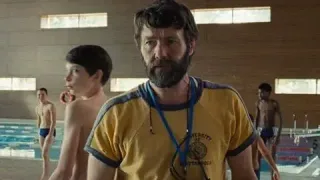July 18, 2018
Now Open: 21c Museum Hotel Kansas City
READ TIME: 3 MIN.
This week marks the opening of 21c Museum Hotels' newest museum hotel concept in Kansas City, Missouri, where the hospitality group has rehabilitated the historic Savoy Hotel and Grill into 21c Museum Hotel Kansas City.
Marking the eighth location for North America's only multi-venue museum dedicated to collecting and exhibiting art of the 21st century, the property features 120 guest rooms, including 19 suites; 6,200 square feet of contemporary art exhibition space; and The Savoy at 21c, the locally-inspired, chef-driven restaurant helmed by Executive Chef Joe West.
"With its rich history and iconic presence, we hope that the reinvention of the Savoy Hotel and Grill as 21c Kansas City will help to support the continued economic growth and cultural catalyzation of the downtown area," said Craig Greenberg, President & CEO of 21c Museum Hotels.
Housed in the historic Savoy Hotel and Grill building, 21c Kansas City is nestled between the Power and Light District and River Market in downtown Kansas City. Designed by New York-based architects Deborah Berke Partners with Kansas City-based architect Hufft Projects, the hotel honors the building's illustrious past as the longest continuously running hotel west of the Mississippi.
Listed on the National Register of Historic Places, the building features an eclectic mix of Victorian and Arts and Crafts architectural details, finishes, murals, as well as twentieth century historical markers and other elements. The project's design team has embraced the building's original features to create a space where contemporary art and historic architecture meet.
Visitors and guests are welcomed to 21c Kansas City via 9th Street through the original entrance guiding visitors toward the lobby gallery where the original mosaic tile floor, historic plaster, and a stain-glass dome have been restored.
The hotel's guest rooms and suites provide a welcome sanctuary from the art and activity that fill the first and second floors, with soaring ceilings, contemporary furnishings and large windows overlooking the city below. The property also features 19 unique, one-bedroom suites, including the rooftop 21c Suite. The 21c Suite features a separate living room and dining room area, along with a large outdoor terrace with expansive views over the downtown landscape.
The property's restaurant is located in the former Savoy Grill and the space adjacent. The lounge retains its historic architectural elements, including murals of pioneers departing from Westport Landing and their journey along the Santa Fe Trail, stained glass windows, and dark wood paneling. The restaurant dining room, by contrast, is bright and airy, with new windows and a lighting scheme programmed to provide a subtle, rotating palette of color, signifying changes in meal periods throughout the day.
Open 24 hours a day, seven days a week and free of charge to the public, 21c Kansas City will provide a dynamic platform of contemporary art exhibitions, installations and cultural programming -- a destination for travelers and locals alike. Examining the current status of global migration, 21c Kansas City will present the inaugural exhibition "Refuge," showcasing works by over 54 artists, including; Hew Locke, Yoan Capote, JR, Stephanie Syjuco, and Mohau Modisakeng, amongst others.
"Refuge" will be on view in 21c Kansas City's gallery space until spring 2019. Simultaneously on view, the property's site-specific collection LIMITLESS features new commissions by artists Brad Kahlhamer, Ken+Julia Yonetani, and Luftwerk, illuminating the realm of the imagination brought to life in Kansas City through the intersection of visionary art and architecture.






